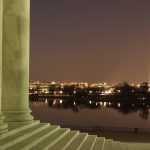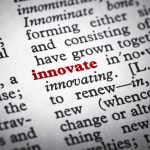 The FTC released its long-awaited study of so-called patent assertion entities, or PAEs, today. As many predicted, the FTC makes several broad recommendations for substantive and procedural reforms. The problem with this, however, is that the study was not designed to reveal the sort of data that could support such policy recommendations. Read more
The FTC released its long-awaited study of so-called patent assertion entities, or PAEs, today. As many predicted, the FTC makes several broad recommendations for substantive and procedural reforms. The problem with this, however, is that the study was not designed to reveal the sort of data that could support such policy recommendations. Read more
Tag: patent assertion entity
How Strong Patents Make Wealthy Nations
By Devlin Hartline & Kevin Madigan
 How did the world’s wealthiest nations grow rich? The answer, according to Professor Stephen Haber of Stanford University, is that “they had well-developed systems of private property.” In Patents and the Wealth of Nations, recently published in the CPIP Conference issue of the George Mason Law Review, Haber explains the connection: Property rights beget trade, trade begets specialization, specialization begets productivity, and productivity begets wealth. Read more
How did the world’s wealthiest nations grow rich? The answer, according to Professor Stephen Haber of Stanford University, is that “they had well-developed systems of private property.” In Patents and the Wealth of Nations, recently published in the CPIP Conference issue of the George Mason Law Review, Haber explains the connection: Property rights beget trade, trade begets specialization, specialization begets productivity, and productivity begets wealth. Read more
Acknowledging the Limitations of the FTC’s PAE Study
 The FTC’s long-awaited case study of patent assertion entities (PAEs) is expected to be released this spring. Using its subpoena power under Section 6(b) to gather information from a handful of firms, the study promises us a glimpse at their inner workings. Read more
The FTC’s long-awaited case study of patent assertion entities (PAEs) is expected to be released this spring. Using its subpoena power under Section 6(b) to gather information from a handful of firms, the study promises us a glimpse at their inner workings. Read more
Patent Licensing and Secondary Markets in the Nineteenth Century
The following post comes from CPIP Programs and Research Associate Terrica Carrington, a rising 3L at George Mason University School of Law, and Devlin Hartline, Assistant Director at CPIP. They review a paper from CPIP’s 2014 Fall Conference, Common Ground: How Intellectual Property Unites Creators and Innovators, that was recently published in the George Mason Law Review. Read more
The History of Patent Licensing and Secondary Markets in Patents: An Antidote to False Rhetoric
The patent licensing business model is a flashpoint of controversy in the patent policy debates. Individuals and firms that specialize in licensing patented innovation – and companies that purchase patents in order to license them – have come under attack by the President, members of Congress, companies, lobbying groups, and others. Read more
Adam Mossoff on Patented Innovation, Licensing & Litigation (Transcript)
Below is the text of the oral testimony provided by Professor Adam Mossoff to the Senate Commerce, Science and Transportation Committee, the Consumer Protection, Product Safety, and Insurance Subcommittee, in its November 7, 2013 hearing on “Demand Letters and Consumer Protection: Examining Deceptive Practices by Patent Assertion Entities.” Read more
Teleforum Panel on End-User Lawsuits in Patent Law on August 29 (free and open to the public)
End-User Lawsuits in Patent Litigation: A Bug or a Feature of Patent Law?
A Teleforum Panel
(Free and Open to the Public)
Thursday, August 29, 2013
Noon – 1pm (EST)
In the patent policy debates today, one issue that has proven a flash point of controversy is patent infringement lawsuits against consumers and retailers, such as coffee shops, JC Penney, and others. Read more
The Myth of the “Patent Troll” Litigation Explosion
[Cross posted at Truth on the Market]
In a prior blog posting, I reported how reports of a so-called “patent litigation explosion” today are just wrong. As I detailed in another blog posting, the percentage of patent lawsuits today are not only consistent with historical patent litigation rates in the nineteenth century, there is actually less litigation today than during some decades in the early nineteenth century. Read more
Guest Post by Wayne Sobon: A Line in the Sand on the Calls for New Patent Legislation
On June 9-11, the IP Business Congress sponsored by Intellectual Asset Magazine (IAM) hosted a debate on the resolution: “This house believes that the America Invents Act should be a legislative line in the sand and that no more reform of the US patent system is needed.” Read more
The SHIELD Act: When Bad Economic Studies Make Bad Laws
[Cross-Posted at Truth on the Market on March 15, 2013]
Earlier this month, Representatives Peter DeFazio and Jason Chaffetz picked up the gauntlet from President Obama’s comments on February 14 at a Google-sponsored Internet Q&A on Google+ that “our efforts at patent reform only went about halfway to where we need to go” and that he would like “to see if we can build some additional consensus on smarter patent laws.” Read more